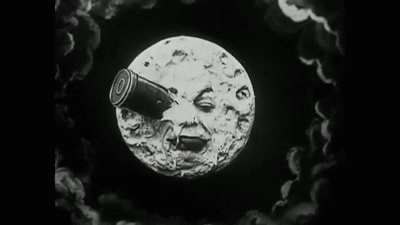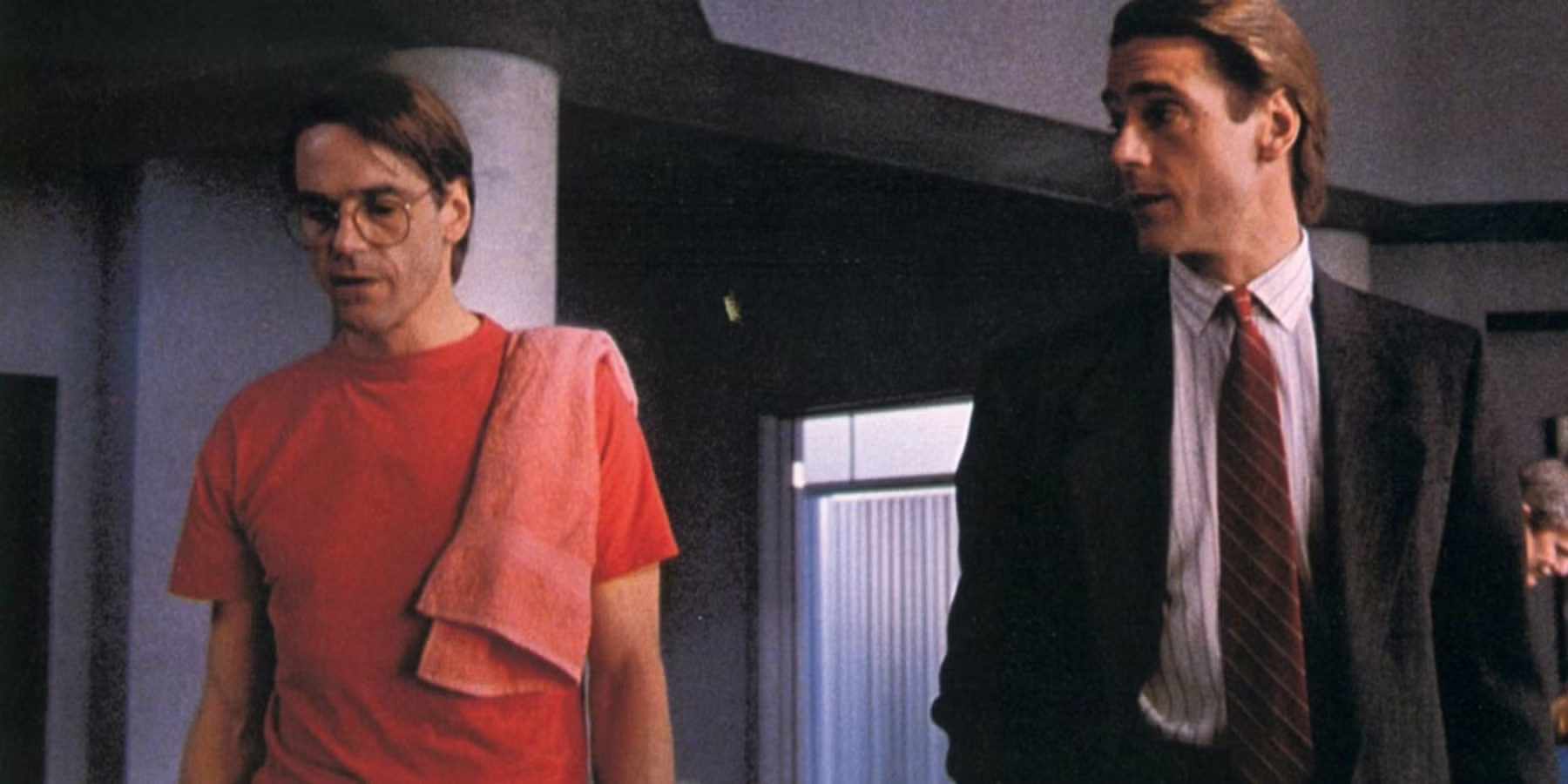BROKEN KNOWLEDGE (11)
By:
November 17, 2025

University of Toronto philosopher Mark Kingwell and HILOBROW‘s Josh Glenn are coauthors of The Idler’s Glossary (2008), The Wage Slave’s Glossary (2011), and The Adventurer’s Glossary (2021). In 2022, they engaged in an epistolary exchange about science fiction. Via the series BROKEN KNOWLEDGE, the title of which references Francis Bacon’s philosophy, HILOBROW is pleased to share a lightly edited version of their exchange with our readers. Also see Josh and Mark’s previous exchange 49th PARALLEL.
BROKEN KNOWLEDGE: FIRST CONTACT | WHAT IF? | A HYBRID GENRE | COUNTERFACTUALS | A HOT DILUTE SOUP | I’M A CYBORG | APOPHENIC-CURIOUS | AN AESTHETICS OF DIRT | PAGING DR. KRISTEVA | POLICING THE GENRE | FAMILIAR STRANGENESS | GAME OVER | THE WORLD VIEWED | DEFAMILIARIZATION | SINGULAR CREATURES | ALIEN ARCHAEOLOGIST | THE PHENOMENOLOGY OF SCREEN-TIME | HOMO SUPERIOR | EVERYTHING IS US.

October 16th, 2022
TORONTO GENERAL HOSPITAL
Quiet Sunday on the ward. My bloodwork was good! Maybe home in a couple of days.
I wanted to add just a few things about the course on film and the uncanny that I’ve been teaching for about a decade, using different approaches, texts, and associated films.
One key feature of the course is compulsory group screenings of six movies, one every other week, followed by brief discussion; and then more in-depth seminar-style meetings in between the screenings. In a more ideal world, where students have infinite time, I’d screen a film every week and then have detailed discussion afterwards. But our course slots are limited to three hours a week, and our terms are twelve weeks. Too short!
This is technically a course in aesthetic theory, or at least that’s how it’s billed on the department website. The great thing about my job is that it consists almost entirely of self-selected tasks (writing articles or books) and tasks with wide intellectual latitude (teaching, open both in content and in style). Another professor would do, and has done, this same course credit in an entirely different way.
So why film? I could have picked any medium to explore philosophically: painting, sculpture, music, even architecture. In fact, I’ve done all that, in classes and in my writing. And I’ve taught courses that focused on taste, with a slate of guest lecturers talking about what taste means in their part of the creative realm, including Carl Wilson on Celine Dion.
But I had just read Mulhall’s book on film and loved the idea of applying (broadly speaking) Wittgensteinian philosophy to Tom Cruise and Sigourney Weaver. It’s also elegantly written. I thought: this is a perfect teaching book. Mulhall is a mentee of Stanley Cavell, and Cavell’s book on film, The World Viewed, was one I already knew. So that was the beginning. The focus on uncanniness was something I’d been working on for a while, especially the idea of the uncanny valley. That fleshed out the reading list with the usual suspects (Freud and Kristeva, as mentioned) plus some more recent, loopier figures.
But which films to examine? At first it seemed obvious: look for cinematic realizations of doubles, revenants, split vision, mirror effects, mistaken identity, and of course abjection. David Cronenberg’s work is central here, especially Dead Ringers but really everything. Even his “naturalistic” work (A History of Violence, Eastern Promises) is about how the body can be violently transformed. All of Hitchcock’s creepy films contain uncanny elements, obviously, especially as read by Žižek. Rear Window is indispensable in this discussion. But then we also have the happy thought that North By Northwest is a truly great film about uncanniness because its central character does not exist. Christopher Nolan delights in the uncanny, especially concerning time. And so on.
I always started with some classics the students were unlikely to know: La Jetée, Contempt, Last Year at Marienbad. And then each year I moved the films around. Because Tzvetan Todorov was on the reading list, and also for Kristeva, there were fantasy and supernatural efforts: La Belle et la Bête, Pan’s Labyrinth, etc. One popular iteration focusssed on the uncanniness of narrative by (per Žižek) stripping its conventionality away via reversal or overlap: Rashomon, Betrayal, Mulholland Drive, Memento. But always Alien and one of the Mission: Impossible films.
Every year I asked the class, as a final assignment, to choose a film they knew and argue that it was uncanny, or contained uncanny elements or themes. I started keeping a master list of these suggestions, along with my own and those of some friends (our mutual friend Brian Berger suggested What About Bob? — talk about the return of the repressed). I had also become fascinated by bad films, in part following the lead of Jonathan Lethem on John Carpenter’s They Live, which is both cinematically and politically uncanny because it’s so stupid. And Tommy Wiseau’s The Room was, for a few years, the closing class screening because, well, if you’ve seen it, you know.
So then: lots of questions! What makes a feature or experience uncanny – an episode of “familiar strangeness”? How, to what effect, are such episodes realized in films? Does that film experience create a kind of uncanny valley of its own? And then, is film itself an uncanny medium, no simple narrative (mostly) representation (mostly) of the world?
I haven’t said enough yet (!) about body-mind relations and bodily transformation, except by implication. I’ll go into those issues as they come along. But clearly sf loves this trope, in books but especially in film, where special effects can be part of the weirdness. Unwitting or unwilling transformation is especially deranging. Cronenberg’s The Fly and District 9 are excellent examples, the latter with deep political ironies in play as well. But what if you had been transformed, or cloned, or were an android and did not know it? That’s what we might call The Big Uncanny: Deckard in Blade Runner. Boomer in BSG, We watch these characters move across our screens and wonder not, as Descartes did, whether I exist – of course I do; but rather, how do I exist, in what form, what is this thing I call my body? (I’ve been asking myself that last question a lot lately.)
Phew! I feel like I’ve pitched the book right there. But what I want to hear, from you, is something (maybe) about your own experience of uncanniness, especially in sf. We both know illustrator Joe Alterio’s projects “Robots and Monsters” and I think of that in this connection. The idea of monsters is scary but not uncanny, unless they appear where they shouldn’t. Robots, on the other hand, seem inherently creepy, or capable of being so? What do you think?
Mark
ALSO SEE: Josh’s BEST 250 ADVENTURES of the 20th CENTURY list | Mark on BATTLESTAR GALACTICA and THE HONG KONG CAVALIERS | Mark and Josh’s exchange 49th PARALLEL.
